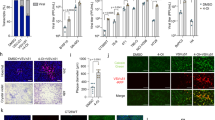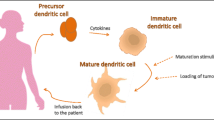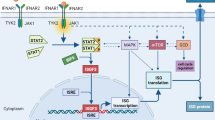Abstract
Background
An oncolytic herpes simplex virus type 1 mutant (HF10) has been isolated and evaluated for antitumor efficacy in a syngeneic immunocompetent mouse model, where it was effective against cancer and conferred resistance to rechallenge with tumor cells in all surviving mice. Several studies have shown that HF10 is effective and safe for use against localized or peritoneally disseminated nonneuronal malignant tumors in animals.
Methods
A pilot study using HF10 was initiated in six patients with cutaneous or subcutaneous metastases from breast cancer. For each patient, .5 mL of HF10 suspension containing various viral doses was injected into one nodule; .5 mL of sterile saline was injected into another. All patients were monitored for local and systemic adverse effects. Nodules were excised 14 days after injection for histopathologic studies.
Results
All patients tolerated the intratumoral injection of HF10. No adverse effects occurred, and histopathological evaluation revealed 30% to 100% cancer cell death.
Conclusions
This pilot study found HF10 to be safe and effective against metastatic breast cancer.




Similar content being viewed by others
References
Nishiyama Y, Kimura H, Daikoku T. Complementary lethal invasion of the central nervous system by nonneuroinvasive herpes simplex virus type 1 and 2. J Virol 1990; 65:4520–4
Yamada Y, Kimura H, Morishima T, Daikoku T, Maeno K, Nishiyama Y. The pathogenicity of ribonucleotide reductase-null mutants of herpes simplex virus type 1 in mice. J Infect Dis 1991; 164:1091–7
Nishiyama Y, Yamada Y, Kurachi R, Daikoku T. Construction of a US3 lacZ insertion mutant of herpes simplex virus type 2 and characterization of its phenotype in vitro and in vivo. Virology 1992; 190:256–68
Takakuwa H, Goshima F, Nozawa N, et al. Oncolytic viral therapy using a spontaneously generated herpes simplex virus type 1 variant for disseminated peritoneal tumor in immunocompetent mice. Arch Virol 2003; 148:813–25
Kimata H, Takakuwa H, Goshima F, et al. Effective treatment of disseminated peritoneal colon cancer with new replication-competent herpes simplex viruses. Hepatogastroenterology 2003; 50:961–6
Teshigahara O, Goshima F, Takao K, et al. Oncolytic viral therapy for breast cancer with herpes simplex virus type 1 mutant HF10. J Surg Oncol 2004; 85:42–7
Becker Y, Hadar J, Tabor E, et al. A sequence in Hpal-P fragment of herpes simplex virus-1 DNA determines intraperitoneal virulence in mice. Virology 1986; 149:255–9
Berkowitz C, Moyal M, Rösen-Wolff A, Darai G, Becker Y. Herpes simplex virus type 1 (HSV-1) UL56 gene is involved in viral intraperitoneal pathogenicity to immunocompetent mice. Arch Virol 1994; 134:73–83
Koshizuka T, Goshima F, Takakuwa H, et al. Identification and characterization of the UL56 gene product of herpes simplex virus type 2. J Virol 2002; 76:6718–28
Committee for Production of Histopathological Criteria, Japanese Breast Cancer Society. Histopathological criteria for assessment of therapeutic response in breast cancer. Breast Cancer 2001; 8:1–7
Culver KW, Ram Z, Wallbridge S, Ishii H, Oldfield EH, Blaese RM. In vivo gene transfer with retroviral vector-producer cells for treatment of experimental brain tumors. Science 1992; 256:1550–2
Qazilbash MH, Xiao X, Seth P, Cowan KH, Walsh CE. Cancer gene therapy using a novel adeno-associated virus vector expressing human wild-type p53. Gene Ther 1997; 4:675–82
Martuza RL, Malick A, Markert JM, Ruffner KL, Coen DM. Experimental therapy of human glioma by means of a genetically engineered virus mutant. Science 1991; 252:854–6
Goldstein DJ, Weller SK. Factor(s) present in herpes simplex virus type 1-infected cells can compensate for the loss of the large subunit of the viral ribonucleotide reductase: characterization of an ICP6 deletion mutant. Virology 1988; 166:41–51
Wong RJ, Kim SH, Joe JK, Shah JP, Johnson PA, Fong YM. Effective treatment of head and neck squamous cell carcinoma by an oncolytic herpes simplex virus. J Am Coll Surg 2001; 193:12–21
Cozzi PJ, Malhotra S, McAuliffe P, et al. Intravesical oncolytic viral therapy using attenuated, replication-competent herpes simplex viruses G207 and Nv1020 is effective in the treatment of bladder cancer in an orthotopic syngeneic model. FASEB J 2001; 15:1306–8
Meignier B, Martin B, Whitley RJ, Roizman B. In vivo behavior of genetically engineered herpes simplex viruses R7017 and R7020. II. Studies in immunocompetent and immunosuppressed owl monkeys (Aotus trivirgatus). J Infect Dis 1990; 162:313–21
Acknowledgments
Supported by the Japan Society for the Promotion of Science (JSPS KAKENHI 16390358), a grant (04-23609) from the Princes Takamatsu Cancer Research Fund, and Takeda Printing Company Limited. The authors thank Yoko Nishikawa, Tama Tsuruguchi, and Eiko Iwata for their technical support and assistance.
Author information
Authors and Affiliations
Corresponding author
Rights and permissions
About this article
Cite this article
Kimata, H., Imai, T., Kikumori, T. et al. Pilot Study of Oncolytic Viral Therapy Using Mutant Herpes Simplex Virus (HF10) Against Recurrent Metastatic Breast Cancer. Ann Surg Oncol 13, 1078–1084 (2006). https://doi.org/10.1245/ASO.2006.08.035
Received:
Accepted:
Published:
Issue Date:
DOI: https://doi.org/10.1245/ASO.2006.08.035




